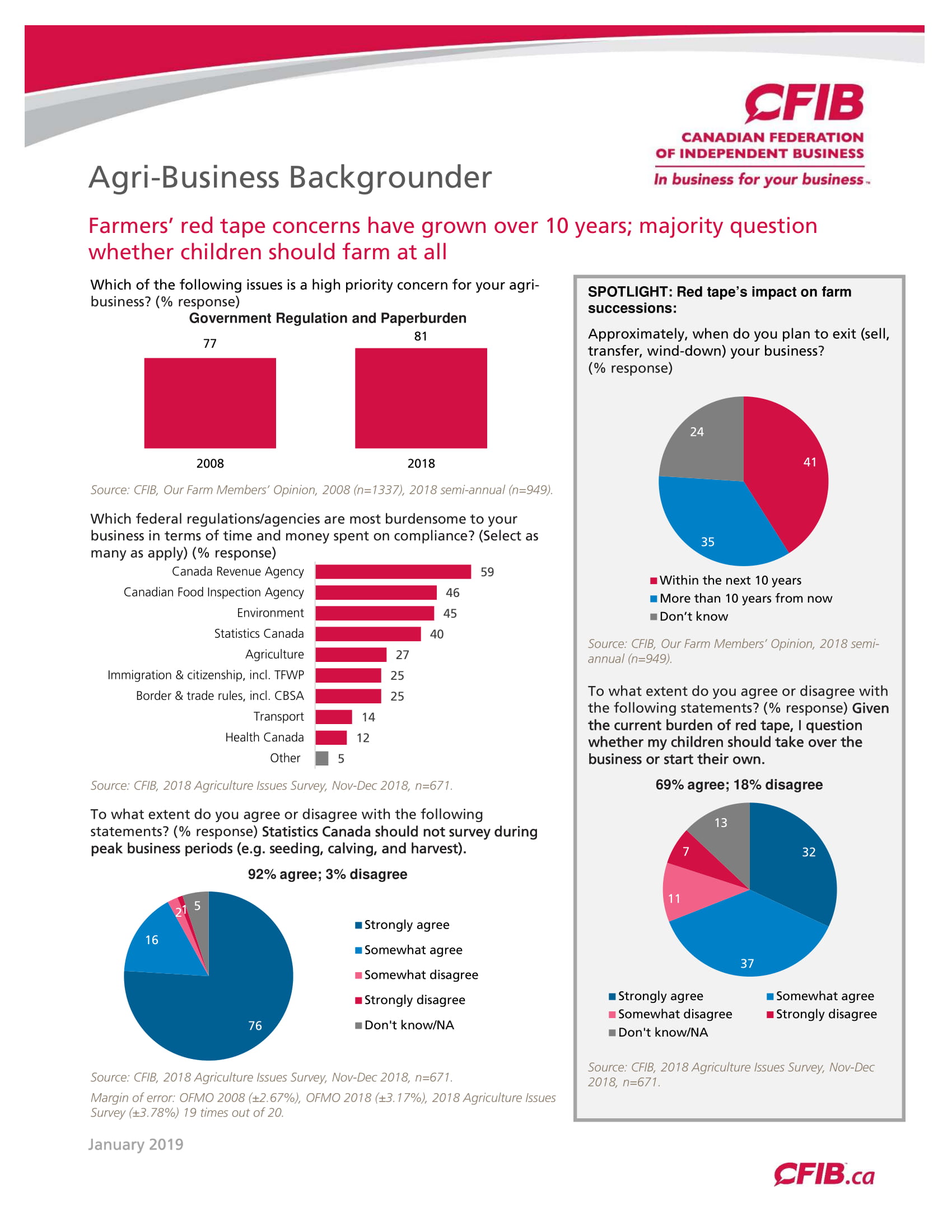More than 80 per cent of producers consider red tape a high-priority concern, a new survey says
By Diego Flammini
Staff Writer
Farms.com
Canadian farmers are increasingly concerned with how red tape affects current and future operations, a Canadian Federation of Independent Business (CFIB) survey says.
The organization polled 671 producers in November and December. In total, 81 per cent of participants categorize red tape as a “high-priority concern,” CFIB found. That figure is up from 77 per cent from the CFIB’s 2008 survey.
One surprising finding from the survey is how red tape could affect succession plans, said Marilyn Braun-Pollon, vice-president for agribusiness with CFIB.
“We found that 69 per cent of farmers are questioning whether their children should take over the farm or start their own business when you look at confusing forms, bad customer service and excessive government regulation,” she told Farms.com. “Ag is a critical sector of the Canadian economy, and red tape shouldn’t be the issue holding back the next generation.”

Red tape can include poorly-timed surveys and inconsistent information, Braun-Pollon added.
Farmers acknowledge that red tape is an issue, but other factors come into play when discussing succession plans, said Cherilyn Nagel, a cash crop producer from Mossbank, Sask.
“Red tape is certainly a concern,” she told Farms.com. “I think what makes it difficult is when the goal posts keep moving. You can find yourself going down a path that makes the most sense and then the rules change and that can have significant implications for what happens next.
“But, first, I think you need a generation that wants to get involved in agriculture, and you need to have a profitable operation to pass on.”
The CFIB’s survey also found that farmers are unhappy about communication with some federal agencies – particularly Statistics Canada.
About 92 per cent of respondents agreed that Stats Canada shouldn’t send surveys during seeding, harvest, calving or other peak business periods.
Farmers continue to receive those calls, and they can be unpleasant, Nagel said.
“It can be obnoxious, at times, how many calls you get,” she said. “It’s awful when you know you’re on their list. I don’t know any farmer that appreciates the phone calls or wants to participate. I think we’ve lost the feeling of why it might be necessary why we need that data, and some of the questions feel intrusive.
“When you ask someone how many bushels they hope to yield, you’re basically asking them what’s on their financial statements.”
Moving surveys to an online format and allowing growers to complete them on their own time could improve participation, Nagel said.
“It would give us a feeling of anonymity instead of talking to someone on the phone and answering these questions,” she said. “And we’d be able to do it when we have some down time, like during harvest waiting for a truck to come.”
The CFIB has also provided the federal government with suggestions on how to cut red tape.
Introducing a Canada-wide visa program, for example, could help attract temporary foreign workers, Braun-Pollon said.
“We’ve recommended the federal government (create) the Introduction to Canada Visa, which would give foreign workers of all skill levels the opportunity to work with an employer for two years as a way to move towards permanent residency.”